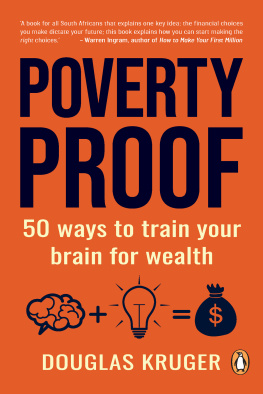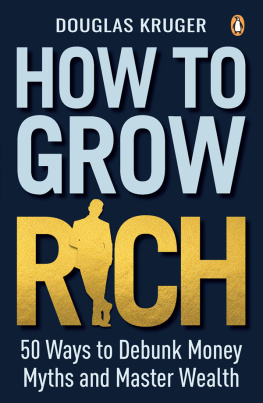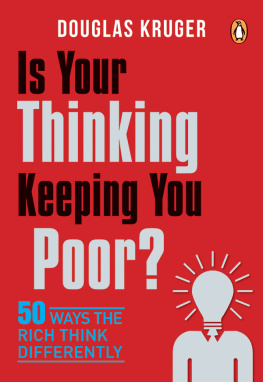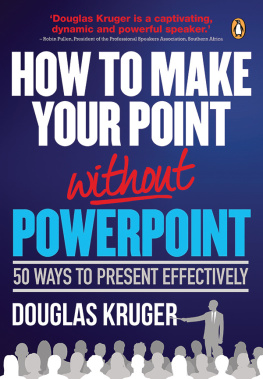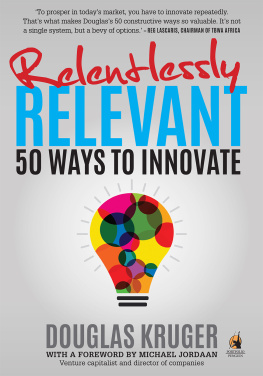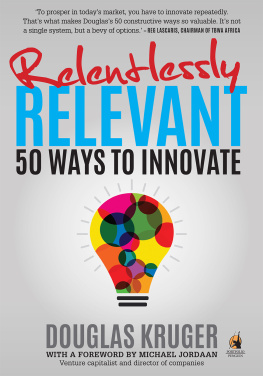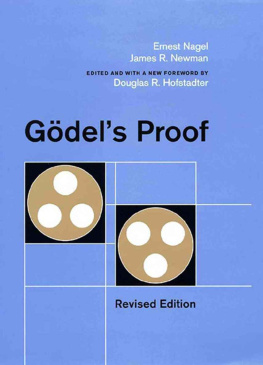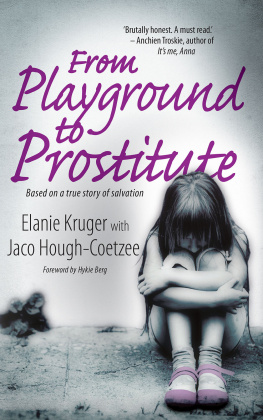Douglas Kruger - Poverty Proof
Here you can read online Douglas Kruger - Poverty Proof full text of the book (entire story) in english for free. Download pdf and epub, get meaning, cover and reviews about this ebook. year: 2019, publisher: Penguin Random House South Africa, genre: Romance novel. Description of the work, (preface) as well as reviews are available. Best literature library LitArk.com created for fans of good reading and offers a wide selection of genres:
Romance novel
Science fiction
Adventure
Detective
Science
History
Home and family
Prose
Art
Politics
Computer
Non-fiction
Religion
Business
Children
Humor
Choose a favorite category and find really read worthwhile books. Enjoy immersion in the world of imagination, feel the emotions of the characters or learn something new for yourself, make an fascinating discovery.
- Book:Poverty Proof
- Author:
- Publisher:Penguin Random House South Africa
- Genre:
- Year:2019
- Rating:4 / 5
- Favourites:Add to favourites
- Your mark:
- 80
- 1
- 2
- 3
- 4
- 5
Poverty Proof: summary, description and annotation
We offer to read an annotation, description, summary or preface (depends on what the author of the book "Poverty Proof" wrote himself). If you haven't found the necessary information about the book — write in the comments, we will try to find it.
Poverty Proof — read online for free the complete book (whole text) full work
Below is the text of the book, divided by pages. System saving the place of the last page read, allows you to conveniently read the book "Poverty Proof" online for free, without having to search again every time where you left off. Put a bookmark, and you can go to the page where you finished reading at any time.
Font size:
Interval:
Bookmark:

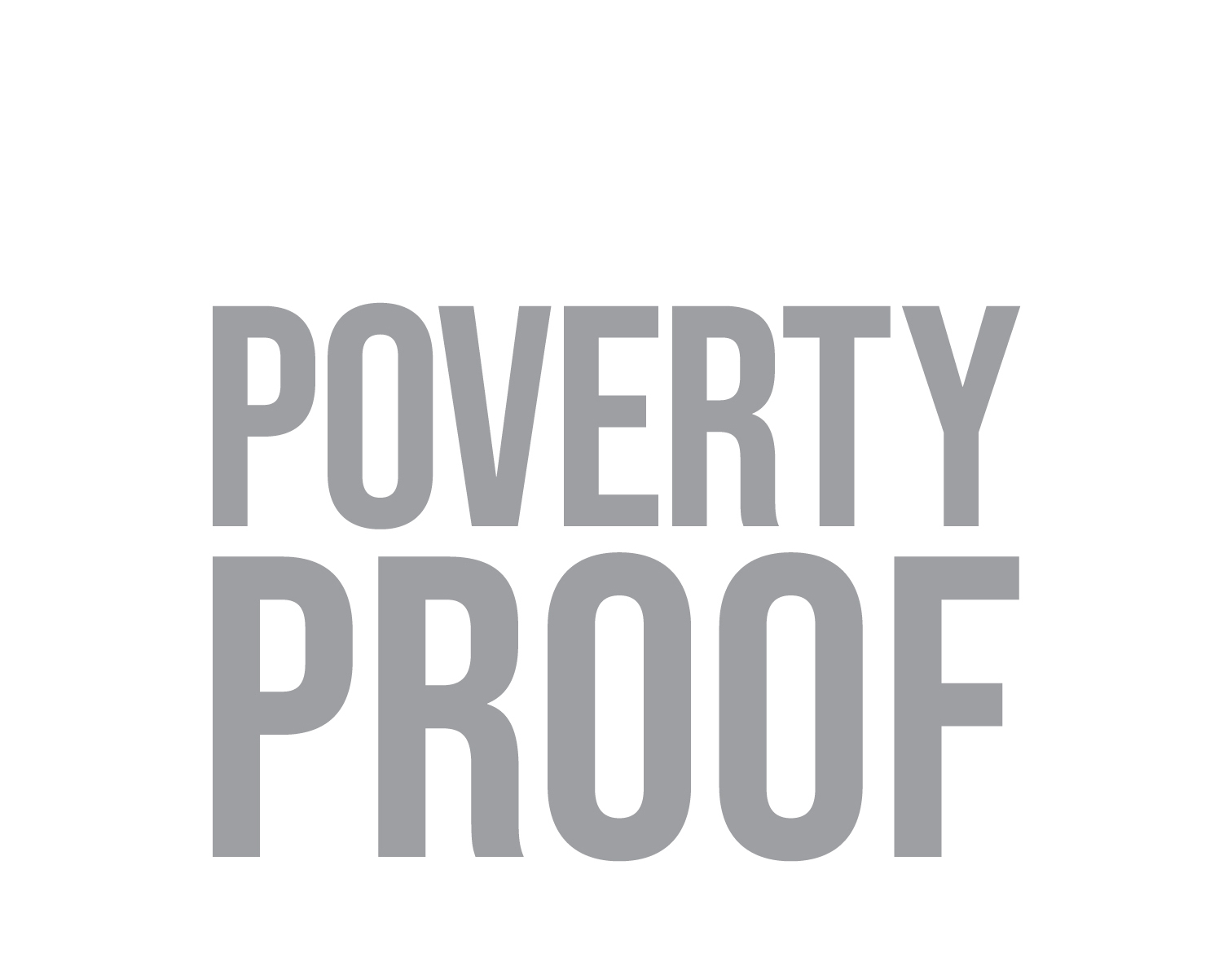
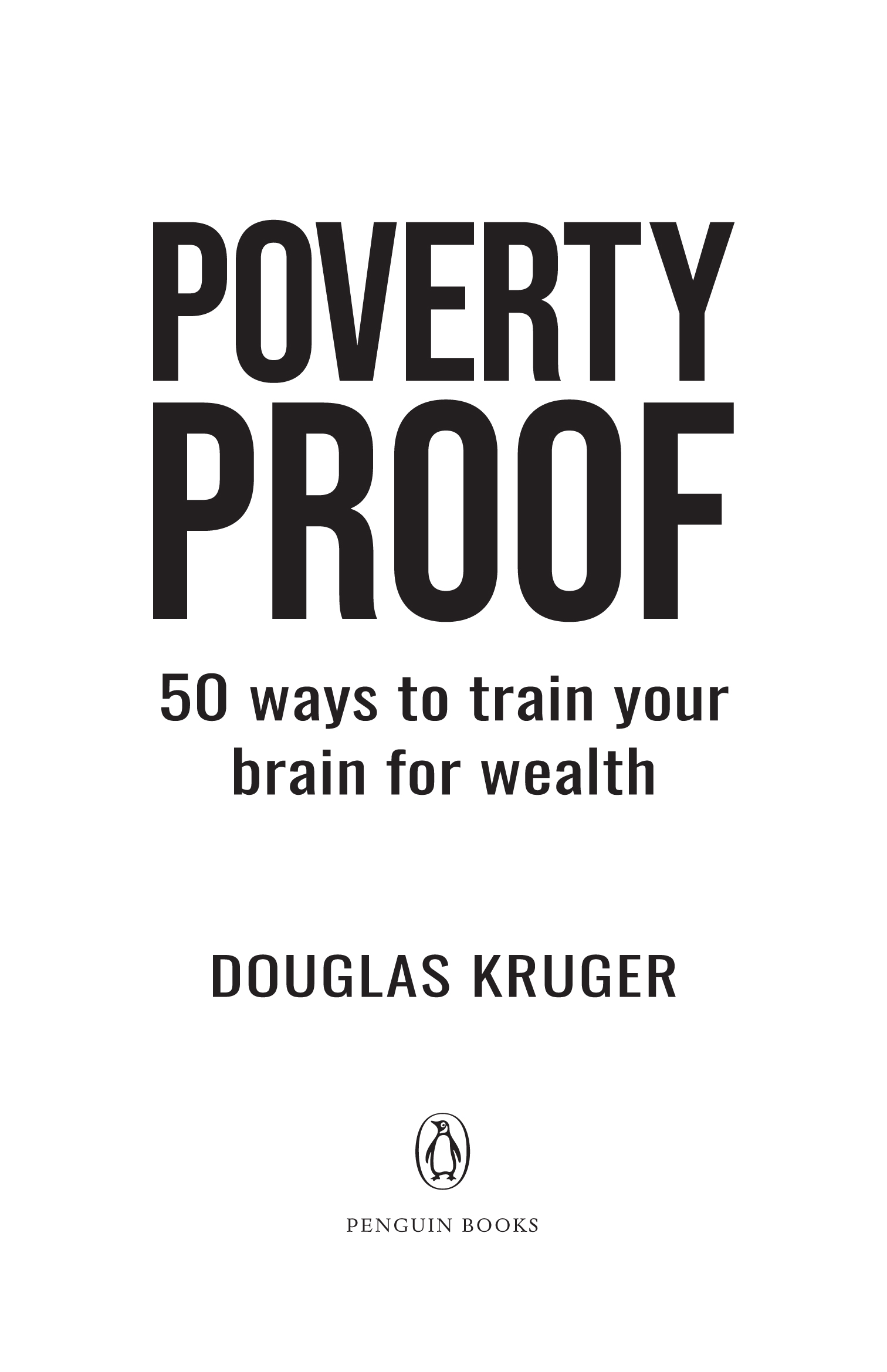
Poverty Proof
Published by Penguin Books
an imprint of Penguin Random House (Pty) Ltd
Company Reg. No. 1953/000441/07
The Estuaries No. 4, Oxbow Crescent,
Century Avenue, Century City, Cape Town, 7441
www.penguinrandomhouse.co.za

First published 2019
1 3 5 7 9 10 8 6 4 2
Publication Penguin Books 2019
Text Douglas Kruger 2019
Cover image yusa2 / AdobeStock
All rights reserved. No part of this publication may be reproduced, stored in a retrieval system or transmitted, in any form or by any means, electronic, mechanical, photocopying, recording or otherwise, without the prior written permission of the copyright owners.
PUBLISHER: | Marlene Fryer |
MANAGING EDITOR: | Ronel Richter-Herbert |
EDITOR: | Angela Voges |
PROOFREADER: | Ronel Richter-Herbert |
COVER AND TEXT DESIGNE: | Ryan Africa |
TYPESETTER: | Monique van den Berg |
ISBN 978 1 77609 451 6 (print)
ISBN 978 1 77609 452 3 (ePub)
CONTENTS
To my dear friend Paul du Toit, who gave me the best financial advice of my life, accompanied by the words, You dont have to understand it, you dont even have to believe it, you just have to do it, and watch it work. And you know something? It did. Cheers, Paul!
The author has put many months of work into researching and writing this book. This ebook is NOT free, and should be bought from an ebook retailer. If you are circulating it for free, you are breaking the law and can be prosecuted under the Copyright Act 98 of 1979.
Heres something strange: perform an online search for the leading causes of poverty and you will very quickly discover a consensus. Everyone seems to know exactly what they are and exactly how they should be solved.
Poverty relief groups from all over the world dominate the search results, and they all list very much the same ideas. They will tell you that the causes of poverty include forces like climate change, inequality, and the limited capacity of governments to provide infrastructure and social welfare to their people.
It all sounds perfectly logical.
But then try this: read properly researched studies about how wealth is actually created, and why some people become wealthy while others do not. Something very strange will jump out at you: the answers do not correspond. They are not the opposites of the so-called causes.
If the answers did correspond, then books on how to escape poverty and become wealthy would contain solutions like: To make people wealthy, we should solve climate change. They dont. Studies on creating genuine wealth the ones that carefully document real advances and replicable principles dont even mention climate change. Its a non-factor.
Or: To solve poverty, we need to make everyone equal. That is called socialism. Weve tried it many times before around the world. In every place it has been attempted, it has consistently made everybody poorer. Usually much poorer. And it tends to give rise to dictatorships. Venezuela is just the latest example. Did you know that their socialist government has made it illegal to report a baby perishing of starvation in a hospital because doing so makes socialism look bad?
Socialism has equality as its goal. Yet inequality is actually one of the great signs of growth. Where there is zero inequality, you can bet that there is also zero entrepreneurship, invention or innovation. Entrepreneurship necessarily creates inequality, and thats not a bad thing. If three people were poor, then one of them started a business and became rich, thats inequality. And its also an improvement.
Objection! Are you saying that inequality is a good thing?
Answer: Yes. Oh, make no mistake, we dont want inequality before the law. We dont want inequality of rights. Those are terrible things. But inequality of wealth and earnings? That is a sign of a healthy, vibrant economy. Its not the inequality itself that matters, and it shouldnt be our goal to solve inequality. The goal is to help poor people to become wealthier. Thats very different.
And if the answers did correspond, they would say: To alleviate poverty, we should extend the welfare state. I believe very strongly in charity. But this much is a certainty: government grants do not solve poverty. They incentivise it.
Studies reveal that reliance on government grants tends to make large groups of people and especially black people much poorer over time.
In Wealth and Poverty, George Gilder shows that, every time governments increase social welfare spending, they dampen the compulsions to work and produce, which are the very creators of wealth. He writes: The defenders of the welfare state tend to assume that the welfare state has a massive effect on the condition of the needy, but little impact on their willingness and ability to fend for themselves. Much evidence, however, indicates the opposite; that the programmes have surprisingly little beneficial effect, but they do have a dramatic negative impact on motivation and self-reliance.
So, what exactly is going on here? Its as if there are two separate conversations, and they are completely different.
The key is to realise: yes, there are two conversations, and they have nothing in common. One is about political ideology. It seeks greater control for governments. To achieve greater control, it needs more people dependent on social welfare and for people to believe that the only solution to environmental issues is more control for the government. It seeks to level out differences between people by, once again, expanding government control.
Did you notice how many times the word control appeared there?
By contrast, reputable wealth literature barely even talks about governments. Where it does, it tends to make the opposite case, generally advocating that governments should get out of the way and free up businesses and entrepreneurs.
Where governments do this, people prosper to degrees undreamt of by our ancestors. Its called capitalism, and, as Yuval Harari demonstrated in Sapiens: A Brief History of Humanity, its the most successful idea in all of human history.
Nothing we have ever done has lifted more people out of poverty, more quickly, than this one idea. In terms of innovation and invention, it is also at the heart of what we do as human beings.
No, the tried and tested studies and literature about genuine escape from poverty, and about genuine wealth creation, do not focus on things that are inflicted upon people. Instead, they do something very different. They all focus on things within people. They focus on the individual. And, in particular, they focus on developing excellent qualities within the individual. Solving poverty turns out to be a matter of raising more excellent human beings, who are taught certain values, traits, behaviours and skills of thinking.
Font size:
Interval:
Bookmark:
Similar books «Poverty Proof»
Look at similar books to Poverty Proof. We have selected literature similar in name and meaning in the hope of providing readers with more options to find new, interesting, not yet read works.
Discussion, reviews of the book Poverty Proof and just readers' own opinions. Leave your comments, write what you think about the work, its meaning or the main characters. Specify what exactly you liked and what you didn't like, and why you think so.

